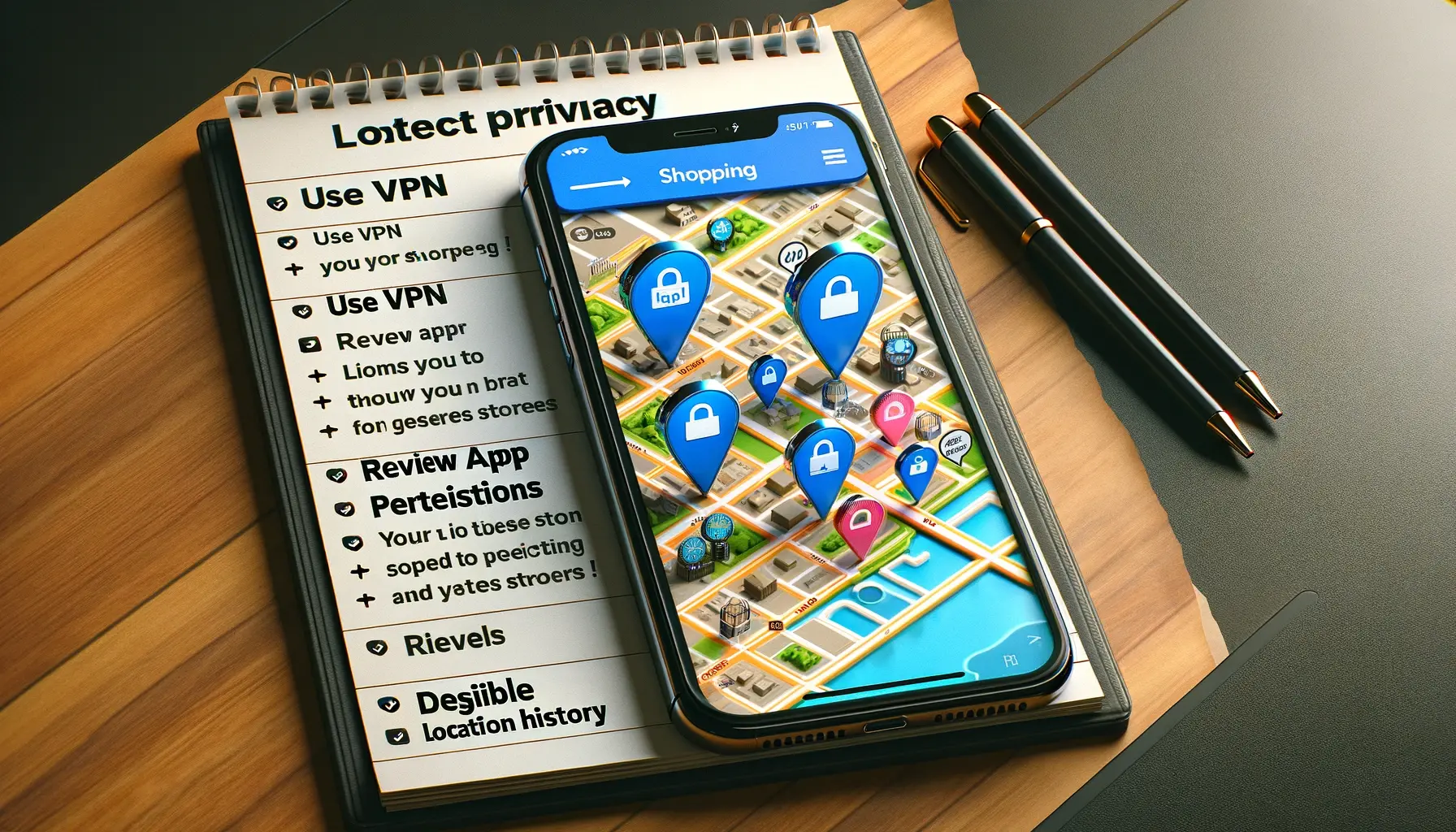In today's world, convenience often trumps caution, and the proliferation of location-based apps gave us new options for traveling or shopping conveniently. These apps promise to make our lives more convenient. However, the trade-off often comes at the expense of our privacy. As consumers, we are often forced to give digital consent and more often than not we don't think about the consequences. Here we offer practical tips for protecting your online privacy.
Understanding The Risks Of Location Sharing
The allure of location-sharing apps is undeniable. With a few taps on your smartphone, you can discover a cozy café tucked away in a nearby alley, or snag a discount at a local retailer. But this convenience comes with a caveat: an often invisible exchange where your location data serves as currency. The current scientific researches emphasize growing public concerns about personal information available online. But are we ready to pay for our comfort?
Location-sharing apps, by their very nature, track your movements. The apps are a treasure for advertisers but can be a potential goldmine for intruders if not enough protected. The implications of unchecked location sharing can range from targeted advertising to stalking or identity theft.
Balancing Convenience And Privacy
Finding harmony between the convenience of location-sharing apps and the imperative of privacy protection is a delicate dance. They can improve your shopping experience and provide recommendations and offers according to your location. But these tools need to be used wisely.

Practical Tips For Protecting Your Privacy
1. Review App Permissions
The first line of defense in protecting your privacy is to scrutinize the permissions requested by any location-sharing app. It's essential to distinguish between what's necessary for the app to function and what's extraneous. Granting access should be done sparingly and thoughtfully. How to track a phone without them knowing becomes a pertinent question not just for the sake of curiosity but as a cautionary example of the extent to which technology can intrude on our privacy if left unchecked.
2. Utilize Privacy Settings
Dive into the privacy settings of each app. These settings are your tools for curating what information you share and when. Customizing these settings can significantly reduce your exposure, limiting sharing to when it's genuinely beneficial or necessary.
3. Use Temporary Or Disposable Accounts
For an added layer of anonymity, consider using temporary or disposable accounts for your location-sharing activities. This approach can keep your primary email and personal information insulated from potential data breaches or misuse.
4. Beware Of Public Wi-Fi
Public Wi-Fi networks, while convenient, are fraught with security risks. When using location-sharing apps on these networks, you're potentially exposing your data to interception. Always ensure that your connection is secure, or use a virtual private network (VPN) to encrypt your data.
5. Regularly Review And Update
Maintaining privacy is an ongoing process. Regularly reviewing the apps you have installed, and the permissions you've granted, can help you weed out unnecessary risks. Updating your privacy settings in tandem with changing app policies ensures you stay ahead of potential privacy concerns.
6. Educate Yourself
Knowledge is power, especially when it comes to digital privacy. Availing yourself of resources like the Federal Trade Commission's guide on location-based services can arm you with the information needed to make informed decisions about your digital footprint.
In the pursuit of convenience, it's crucial not to lose sight of the value of privacy. By adopting a proactive approach to privacy management, you can enjoy the benefits of location-sharing apps without compromising your personal information.

Deepening Your Privacy Strategy
Developing A Privacy-First Mindset
The foundation of digital privacy is a privacy-first mindset. This involves always questioning the necessity of sharing your location and understanding the potential long-term implications of such actions. Developing this mindset is crucial in an era where digital footprints are indelible, and seemingly innocuous information can be aggregated to reveal intimate details about our lives.
The Importance Of Reading Privacy Policies
While often overlooked due to their length and complexity, privacy policies are the blueprint of how companies intend to use your data. Taking the time to read these policies can be eye-opening, revealing how your location data is shared, stored, and potentially monetized. Understanding these policies is vital in making informed decisions about which apps deserve your trust and which ones do not.
Leveraging Technology For Privacy
Technology is a double-edged sword; while it can compromise our privacy, it can also protect it. Tools like VPNs can mask your actual location, providing an additional layer of security when using location-sharing services. Similarly, secure browsers and privacy-focused search engines can prevent tracking across the web, making it harder for companies to build a profile on you based on your location data.
The Role Of Encryption
Encryption transforms your data into a code to prevent unauthorized access, making it a critical tool in protecting your privacy. Ensuring that the location-sharing apps you use employ strong encryption standards is essential. This step can safeguard your data in transit, making it much more difficult for hackers to intercept and misuse your information.
Staying Informed and Proactive
Keeping Up With Privacy Advances
The digital landscape is perpetually evolving, with new threats to privacy emerging as quickly as new technologies to combat them. Staying informed about the latest privacy tools and threats is crucial. This proactive approach can help you adapt your privacy practices in real-time, staying one step ahead of potential risks.
The Power Of Community And Advocacy
There is strength in numbers, and the digital privacy community is a testament to that. Engaging with this community can provide insights into protecting your privacy and advocating for stronger privacy laws. Through collective advocacy, consumers can push for regulations that ensure companies are transparent about data usage and that users have control over their information.
Regular Digital Clean-Ups
Just as you would declutter your home, periodically reviewing and cleaning up your digital presence can significantly enhance your privacy. This includes uninstalling apps you no longer use, revoking unnecessary permissions, and deleting accounts that serve no purpose. A leaner digital footprint is a safer one.
Real-World Scenarios: Learning From Case Studies
The Case Of Oversharing On Social Media
Consider the case of Jane, who loves sharing her shopping conquests on social media, often tagging her location to boast about deals. Unknown to her, this habit made her a target for burglars, who could infer when her house was empty. This scenario underscores the importance of being mindful about what and when you share, especially concerning your location. A safer approach is to share your experiences without revealing your exact whereabouts or wait until you're safely home.
Navigating The Perils Of Public Wi-Fi
John, an avid shopper, often used public Wi-Fi at malls to access location-sharing apps for the best deals. Unfortunately, this habit compromised his personal information, leading to unauthorized transactions on his credit card. This situation highlights the risks of unsecured networks and the value of using VPNs or cellular data when shopping in public places.
Advanced Privacy Tips For The Proactive User
Encrypt Your Communications
Beyond app encryption, consider encrypting your text messages and calls. Apps like Signal offer end-to-end encryption, ensuring that your communications remain private, even from the service providers themselves.
Disable Location History
Many apps and services keep a history of your locations. Regularly check and clear your location history, or better yet, disable this feature entirely if it's not essential to your use of the app.
Be Wary Of Geotagging
Photos often contain metadata, including where and when they were taken. Before sharing photos online, remove this metadata to prevent inadvertently sharing your location.
Use Anti-Tracking Tools
Implement browser extensions or apps designed to block trackers from following your online activity. This reduces the amount of data collected about you, including your location preferences.
Consider Alternative Apps
For every popular location-sharing app, there's likely a privacy-focused alternative that offers similar functionality without the privacy compromises. Research and consider using these alternatives.
Educate Those Around You
Share your knowledge about digital privacy with friends and family. Helping others understand the importance of privacy can create a more secure environment for everyone.
Embracing Digital Autonomy
In the digital age, our privacy is constantly challenged, but it's also defended by knowledge, tools, and practices that empower us to protect our personal information. While location-sharing apps offer unparalleled convenience, they also pose risks to our privacy. By adopting a privacy-first approach, regularly reviewing and adjusting our digital habits, and utilizing privacy-protecting technologies, we can enjoy the benefits of these apps without compromising our security.
Remember, protecting your privacy is an ongoing process, not a one-time setup. It requires vigilance, awareness, and the willingness to adapt to new threats and solutions. By staying informed and proactive, we can navigate the digital world with confidence, knowing that we're taking the necessary steps to protect what's most valuable—our privacy.
In this digital era, your privacy is not just a right; it's a reflection of your awareness and choices in the digital realm. Let's choose wisely and protect it fiercely.

